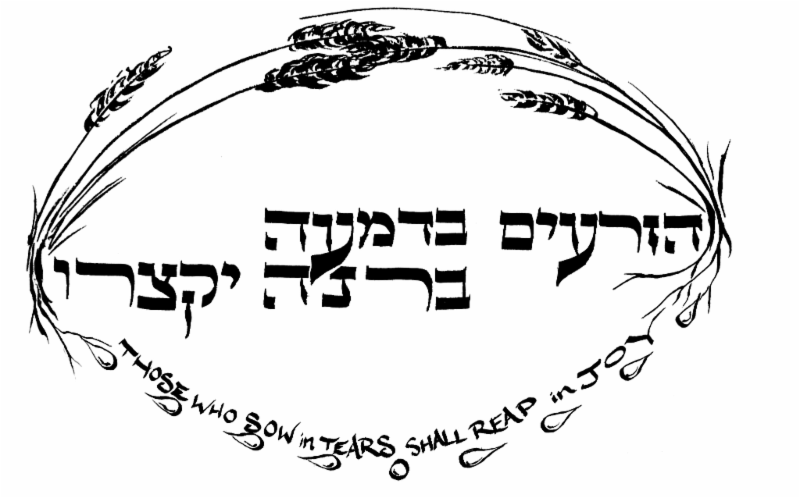I know how President Trump felt at the Vatican this week.
When I was a kid, the kind of birthday gift I always loathed was the one that my parents got me not because I wanted it, but because they felt I needed it. While I wanted tickets for the Sox, they gave me socks.
When Pope Francis handed Trump the official papal gift on Wednesday, I could imagine a Christmas-morning anticipating building as the president unwrapped it. What would it be? An electoral college map signed by God? Instead, Pope Francis gave him a personally signed copy of his own encyclical on climate change, entitled “On Care for Our Common Home,” the Trumpian equivalent of castor oil — or a pair of socks.
The timing of this gift was especially apt, from a Jewish perspective, because next week’s festival of Shavuot is, like many Jewish holidays, agriculturally based and very green. Hazon, a Jewish environmental organization, suggests “10 ways to make your Shavuot more sustainable,” with number 10 shockingly suggesting, “Don’t do dairy.” The organization also provides a farmer’s take on how Jewish rituals connect to the cycles of planting, harvest, and eating. In a similar manner, the Religious Action Center implores us on Shavuot to reconnect to the Land and produce, something kibbutzim have been doing on this first fruits festival since the early days of Zionism.
But it’s not just Jews who are feeling green this week. Next Friday begins the month-long Muslim observance of Ramadan, and Muslim environmental groups are looking to make that month-long fast greener, calling Ramadan “a once a year opportunity to tackle global issues like over-consumption, materialism, poverty, hunger, wars” and yes, global warming.” Muslims are being challenged to go beyond thinking of Ramadan as a month of abstaining from food and drink for a part of the day and binge eating at night.
The New York Times ran a series last week on how Antarctica is going green, and not in a good way. While Americans are being distracted by Russia-gate, the world is continuing to melt at a rapid pace. And while just about every nation in the world has jumped about the Paris climate train, one small group continues to resist, led by one world leader, which is why the Pope decided to gift him a pair of socks.
Given that one of the world’s great moral leaders has chosen to spend his precious few minutes of chitchat with the President focusing on this issue above all others, I decided to download the full encyclical and read it.
Some highlights:
For human beings… to destroy the biological diversity of God’s creation; for human beings to degrade the integrity of the earth by causing changes in its climate, by stripping the earth of its natural forests or destroying its wetlands; for human beings to contaminate the earth’s waters, its land, its air, and its life – these are sins….I urgently appeal, then, for a new dialogue about how we are shaping the future of our planet. We need a conversation which includes everyone, since the environmental challenge we are undergoing, and its human roots, concern and affect us all. The worldwide ecological movement has already made considerable progress and led to the establishment of numerous organizations committed to raising awareness of these challenges. Regrettably, many efforts to seek concrete solutions to the environmental crisis have proved ineffective, not only because of powerful opposition but also because of a more general lack of interest. Obstructionist attitudes, even on the part of believers, can range from denial of the problem to indifference, nonchalant resignation or blind confidence in technical solutions. We require a new and universal solidarity.
In this powerful document, the Pope deftly synthesizes the scientific and the spiritual, connecting our environmental crisis to a plethora of social and economic issues. While I don’t agree with every point (he ties it into abortion, for instance), the depth of his passionate argumentation is astonishing.
If President Trump were to read this document on the plane ride home, perhaps he would reconsider some of the many dangerous steps his administration has taken over the first months of his presidency. Maybe he could take a few moments to peruse a running list of environmental abominations being kept by the National Geographic. Or look closely at the 23 essential environmental rules rolled back in the first 100 days, all of this before this week’s budget proposal that would decimate the EPA, slashing it by 31 percent.
Fortunately, the Pope is not the only religious leader taking aim at policies causing harm to our common home. Not only are Jews and Muslims joining hand in hand with Catholics to save our planet, but in fact it’s nearly impossible to find a single world religion that hasn’t expressed deep concern over the impact of man-made climate change.
Here is a collection of statements, organized alphabetically first by religion, then by denomination. This list demonstrates the nearly unprecedented unity within the interfaith community on this important issue.
Have the world’s major religions ever agreed so wholeheartedly and single-throatily about anything else? Undoubtedly a stray pastor or two will buck this overwhelming stampede toward stewardship. There are a few outliers who reject the scientific consensus, though if they’ve ever read the Bible, it’s hard to reject stewardship on religious grounds. If these outliers refuse to acknowledge science in favor of fossil fuel dollars, it’s time to “out” the liars.
From Shavuot to Ramadan to Pentecost (June 4 for the Christian world), from Jerusalem to Mecca to Vatican City, the cry to save our planet will intensify over the coming days.
The question is whether, on a single plane flying home to Washington from Europe, that cry will be heard. President Trump should try on the socks and be grateful that at least the Pope didn’t give him a lump of coal.


